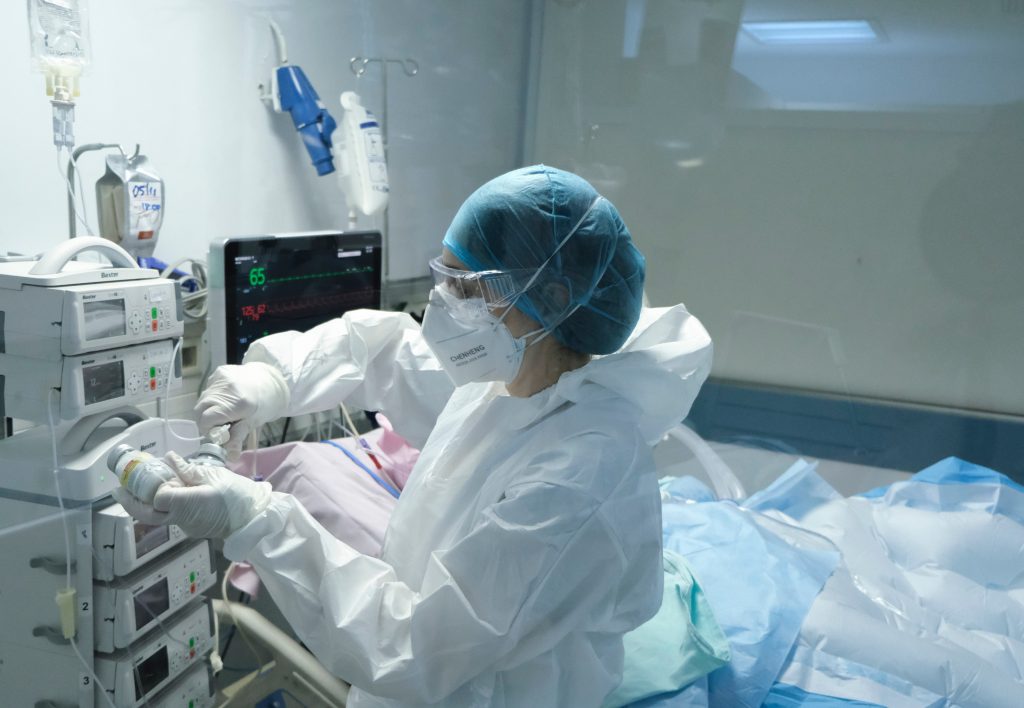When I got an invite to attend “LTHT post pandemic praise and worship night”, I said ‘Yes’ right away. The main reason is that when it comes to some people, I do as I’m told. No ifs, ands or buts!
There was a second reason. Curiosity.
I believe in the five domains of wellbeing – physical, mental, psychosocial, economic and spiritual. However, working in the NHS in the last two decades has in one way been a contrast from my experience of the first decade abroad. It takes just one patient being unhappy with my views on religion and I could be hauled before the GMC so I have learned to be quick to listen and very slow to speak about spirituality. So, Christians in Leeds Teaching Hospital Trust coming together to give thanks to God in song, dance and prayer tickled my fancy.
What a night it was! Staff came from the clinical and administrative departments of the Trust along with their family members and friends. The Chief Executive Officer of Airedale NHS Foundation Trust, Foluke Ajayi was also there. One presentation got me reaching for a handkerchief. I asked Laura Sedgley to allow me publish her spoken words. She obliged. Perhaps, a podcast would have been more appropriate but here it is…
COVID 19 – Where we were and where we are in ICU
I have cared for adults, children and babies following critical illness. Given the nature of ICU, sadly many patients have not survived and I can vividly remember many of these tragic and harrowing cases. I do not believe I have seen anything like I saw in COVID 19.
To prepare for this talk, I asked my family and friends to describe COVID and NHS staff. Many spoke of images of staff wearing PPE, pictures of staff with “strap marks”, patient’s dying and that we were kind, caring, heroes, angels and all of us deserved a pay rise.

But we did not care how we usually did. We did our best, but often it felt woefully inadequate and inhumane. Families could not be with loved ones as they died. So we became patient’s families. We made zoom calls, took handprints, held hands, stroked foreheads, sang songs/hymns, recited prayers/poems/last words/family messages of love. We treated every patient as if they were our own. But we all knew deep down it was not enough and we had failed our patients, their families and our profession.
After COVID, there has been a lot of work with ICU teams to help them come to terms with what we experienced. However, with waiting lists and back logs from lock down, normal activity resumed very quickly, perhaps too quickly. Many of us still describe feelings of loss, guilt, fear, anger, loneliness, despair and emptiness. Sadly, many of my friends have left ICU nursing or nursing altogether as despite informal and formal help, support and counselling they cannot get over what they saw and experienced in COVID. Before COVID, the average experience of ICU nurses was 3 years, now it is 6 months and 50% of our staff nurse posts are unfilled. Before COVID PTSD and burnout was something I read about, now it is something I see daily in people I care about.
During and after the 1st wave of COVID, I felt like a light had gone out in me and I couldn’t turn it back on. I felt I had failed my patients, their families, my work family and friends and most importantly my own family and friends. I also felt I had failed God. I felt off balance and lost from my faith and could not find the strength to do what I needed to do. I needed to lead and support colleagues through COVID. I felt lost from God and my faith when I needed it most. When the churches reopened, I did not feel worthy enough to attend Mass, I felt I had done “wrong”.
ICU nursing teams were sent on “rebuilding retreats”. We were advised to focus on meditation, mindfulness and other forms of self-care that put us at peace – this sounded quite like praying to me. To me, prayer is letting God into my life and putting my trust in his will. I decided to in the words of St Mark, “pray without doubt in our hearts”. I started and ended my day with a prayer and praying the rosary. I went back to confession and Mass, I was honest with myself and with God – the Priest at my first confession said, “my soul needed a rest”. I felt at peace and balanced again – my role in COVID recovery and supporting staff is to spread light not darkness.
Thank you Laura and everyone who worked in ICUs up and down the country in the darkest days of Covid-19 pandemic. We use you as point of contact for health, care and all other frontline workers across the globe who were in the eye of the Covid-19 storm. May you be refreshed as you have refreshed others.
Final thoughts: On several occasions, I have listened to patients tell sad stories in the consulting room and wished I could hold their hands and say, “God hears all, sees all and knows all. He can and will help you.” Instead, I’ve had a self-check and brought the consultation to a close. I wonder who else feels that way. Should I be ashamed of the gospel especially where I see that spiritual well-being is the patient’s weakest link? Your guess is as good as mine.
Gallery Photos & Video: Courtesy BAJMedia +447950503884
Abiye Hector-Goma is a General Practitioner based in Leeds, UK who cares about his 10k patients and the local communities where his practices are based. He is keen to pursue work-life balance with the help of better-informed patients and their families.
@KayHector
ExpertPatients@outlook.com
www.kayhector-proactivehealth.com